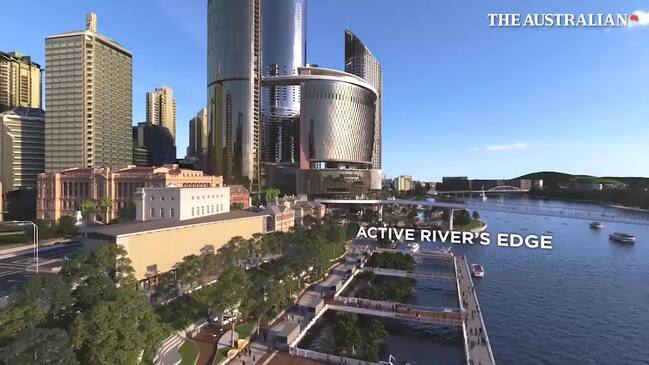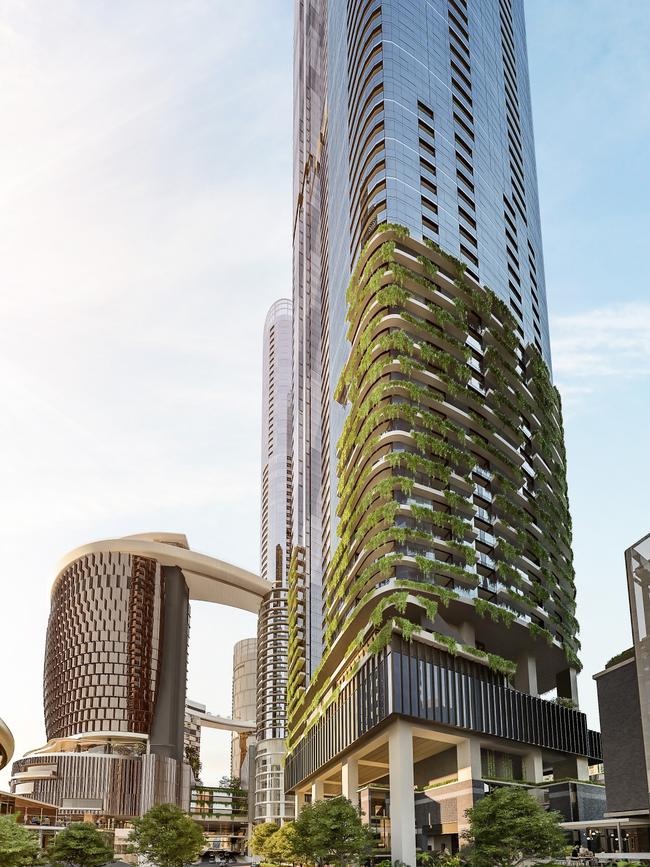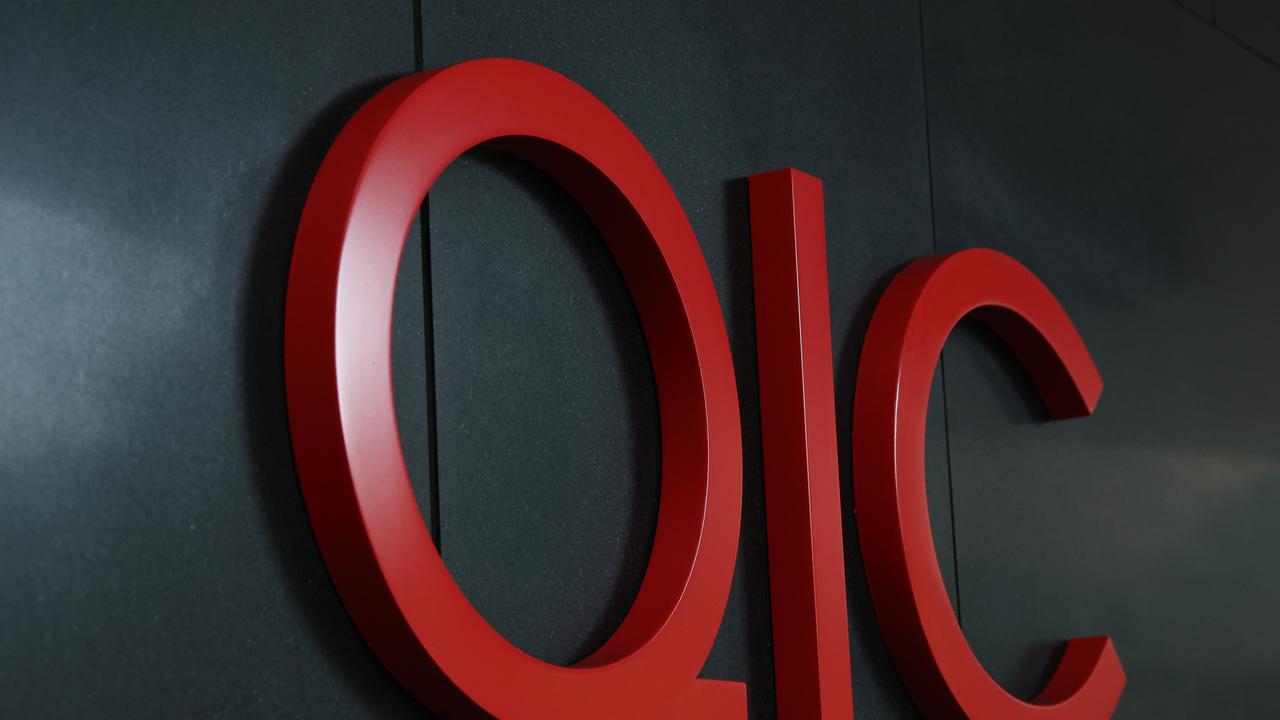Star’s Hong Kong-based partners cancel Queen’s Wharf unit tower sales in Brisbane
Hundreds of sale contracts for units in a luxury tower of Star’s new Brisbane casino precinct have been cancelled by its Hong Kong partners because of cost blowouts.

Business
Don't miss out on the headlines from Business. Followed categories will be added to My News.
The Hong Kong partners in troubled Star Entertainment’s new Brisbane casino precinct say cost blowouts on a luxury residential tower have forced the cancellations of hundreds of apartment sale contracts.
The revelation comes as executives of the partners, Chow Tai Fook Enterprises and Far East Consortium, meet in Brisbane to discuss the future of the financially stricken Star as it edges closer to a possible collapse.
The joint venture partners on Tuesday said they were unable to undertake the development of Queen’s Wharf Tower under the “current cost or time constraints”, forcing the cancellation of sale contracts on apartments.
The tower includes 819 luxury apartments adjacent to the Queen’s Wharf casino and entertainment precinct. The inclusion of a “sunset clause” in the contracts allowed the partners to cancel the contracts if construction extended beyond a specified deadline.
The tower, and two others at the $3.9bn Queen’s Wharf, are being developed by the Hong Kong companies with no involvement by Star. Chow Tai Fook and Far East own half the adjacent Queen’s Wharf casino complex, with the balance owned by Star.
Chow Tai Fook and Far East are seeking a 12.5 per cent price increase to complete apartments at the tower, some of which have a price tag in excess of $3m.
The companies said it had advised purchasers of the decision in December with more than 440 customers renewing their contracts. Those who do not wish to continue with the purchase will have deposits returned.
The partners blamed the “past few years of unheralded cost increases and supply chain issues” on the decision. “After careful consideration, we are seeking a 12.5 per cent price increase while maintaining the initial deposit,” they said. “There will be no upfront cost to existing purchasers.”
In order to mitigate cost increases, Far East Consortium and Chow Tai Fook said they had established their own construction company to build the tower, which is expected to be completed three years behind schedule, in 2029.
“We are extremely passionate about this development and want to see it come to life and as such have added four storeys to the tower,” the joint venture partners said.

The tower, which has been heavily marketed as a high-end investment, was originally scheduled for completion by mid-2026, but construction delays extended the settlement period past the agreed-upon date, triggering the sunset clause.
The joint venture partners announced in 2022 that the residential tower had exceeded all sales targets, with 90 per cent sold within the first four weeks. Many of the affected investors, who paid substantial deposits of more than $400,000, are now weighing their options and the financial impact of the delay.
One investor, who spoke on the condition of anonymity, shared his frustration at the handling of the situation. “It feels like they’ve just pushed us aside,” he said. “We were ready to take possession of a luxury riverside property, and now we’re being asked to pay more for the same units.”
Another investor said the decision would shake confidence in the broader Brisbane property market. “When a developer pulls contracts like this, it undermines trust, and that has long-term consequences,” the investor said.
Executives of the joint venture partners are in Brisbane this week to inspect the Queen’s Wharf precinct and receive updates on Star’s deteriorating financial performance.
A Star spokesman did not confirm the visit, but said it was “engaging with its stakeholders”.
One scenario in a possible restructuring of Star would see Far East Consortium and Chow Tai Fook Enterprises take a larger equity stake in the overall precinct.
Star CEO Steve McCann had made a plea for the NSW and Queensland governments to provide a temporary pause on gaming taxes to help protect the jobs of the company’s 9000 workers.
Star’s revenue declined 15 per cent to $299m in the December quarter, even as it narrowed its losses to $8m from $18m.
The company warned there was continued weakness in the operating performance of the group due to the ongoing challenging consumer environment, the impact of mandatory carded play and cash limits in NSW as well as costs associated with ongoing remediation activities.
Huge cost overruns on the Queen’s Wharf precinct and Covid lockdowns have played their part in bringing Star to its current debacle. But tighter regulations to prevent money laundering and other criminal activities, as well as a poor corporate culture, also have resulted in what many consider is a broken business model.
More Coverage
Originally published as Star’s Hong Kong-based partners cancel Queen’s Wharf unit tower sales in Brisbane




